- Home
- Dustin Stevens
Ships Passing Page 2
Ships Passing Read online
Page 2
A sentiment that is helped in no small part by the condescension Flynn manages to add to every last thing he says.
“So the SEAL has gotten involved, started asking questions?” Flynn asks.
“Among other things,” Teller replies.
Grunting softly, Flynn shifts his attention to the windows as well. For a moment, he sits in silent contemplation, watching as the sets roll into shore, eighteen-inch whitecaps deposited on the sand in even intervals.
After almost a full minute, he shifts back to her, any previous angst he held now gone.
“Just wipe the whole thing away.”
For the first time in what feels like ages, Teller finds herself genuinely surprised. She just barely manages to keep her jaw in place as her eyebrows rise slightly.
“Excuse me?”
“You heard me,” Flynn says, lifting a hand from the arm of the chair and waving it before him. “The whole thing is a losing proposition now, anyway. We already got the court case we needed. It’s only a matter of time before Congress comes around.
“We’ve gotten all we can from this mess. Just get rid of it and let’s move on.”
Chapter Three
The early morning sun is barely full above the eastern horizon, pale yellow light cascading over the sands of the Anza-Borrego Desert. Not yet enough to provide the warmth it promises later in the day, it serves only as illumination landing on the two dozen or so Wolves gathered together, the crests sewn onto the back of their black leather vests shining brightly beneath the light.
Arranged in a loose half-circle, long shadows stretch out before them, their combined darkness almost obscuring from view the reason they are here.
Compared to the sound of motorcycles arriving and shovels scraping against sand and soil, the world has gone relatively quiet. A faint breeze pushes in from the west, rattling the sparse grasses around them, lifting the scent of sage into the air.
Otherwise, there is nothing more for the men to seize on than the animosity they feel. The combination of hatred and confusion and frustration that has painted the last week and counting for them.
That promises to extend for at least a few days more.
Standing on the far left of the group, Ringer – the man responsible for leading them – allows the silence to linger. Recognizing what it is doing within the confines of his own mind, he flicks a gaze to the men around him, their faces intimating the same volatile cocktail lingering just beneath the surface.
The young man in the grave before them was known simply as Prince. Coming on as a prospect not much out of high school, he’d been around for almost a decade, long enough to have earned his full patch.
Long enough even that most of the men had forgotten his first name, the simple handle stitched onto the front of his vest the only moniker he needed.
“You all know how much I hate doing this,” Ringer says. In the quiet of the morning, he doesn’t need to raise his voice in the slightest to be heard.
If anything, his tone only adds to the poignancy of the moment, a pair of men pinching their eyes closed as he speaks.
“This is not a fitting end for our brother, for one of the Wolves.”
Both of the statements made are true, though they are quite a long way from being all of it. Prince was a good soldier, a loyal rider, someone that likely would have retired under the brand.
But his ceiling was already in place. Ringer and the others had discussed it years before, when the young man had first patched over. They had seen that while he was disciplined, took orders, could be counted on in a tussle or to keep his mouth shut, his greatest limitation was his lack of ambition.
It wasn’t uncommon for men like him to seek out the vest. Looking for something more to complete whatever they felt lacking in their life, once that was found, they didn’t aspire to more.
To them, just making it was the end goal. There was no higher purpose, no need to one day take over the organization or expand the club’s reach or even venture into new markets.
Prince was a good man, and would have lived a good life as a Wolf.
But he was about to achieve far, far more in death.
“We all know who is responsible for this,” Ringer says, putting a bit of extra bite on each word. “Just like we know he likely did the same to Linc.”
Each word is chosen carefully, plotted out during the long ride out into the desert just a short time before.
The decision to bury Prince in a shallow pauper’s grave isn’t one he made lightly, but given the swirl of attention already on them, there isn’t much other choice. Reporting the death would only bring the detectives back to their doorstep. It might somehow even validate their opponent and the fight it seems he has undertaken.
Neither is acceptable.
“Prince is lying like that right now,” Ringer says, extending a finger down to where Prince’s body lies face down on a tarp. The sides of it extended out wide, when the eulogy is over they will be tucked in tight, sealing his body from any predator that might come along. “So that the lasting image you all have of him is of that gaping wound at the back of his skull. At his blood leaking down, covering the crest of our beloved Wolves.”
Around the group, he can sense fidgeting. A few shift their weight from side to side. On the far side, one even cracks a knuckle.
“I want that image to sit in your brain. I want it to fester. I want you to spend every waking moment knowing that out there right now is a man that thinks he can get away with this.”
The entire thing is more rah-rah than Ringer prefers, but his choices are limited. The time of sending Byrdie and Gamer to deal with their newfound target alone is over. Same for sending out two at a time to scout, as if they are the ones in control.
The moment has arrived for them to use the one clear advantage they have. For them to fall back on the strength of their numbers, to borrow the tired cliché and acknowledge that wolves are meant to run in a pack.
And the best way to do that is to incite them. To build them to a froth, having them practically running in place, anticipation roiling through them, before finally pointing out their target and setting them loose.
“Every single one of us vowed two things when we joined,” Ringer continues. “We made two promises – to ourselves and each other. That we would die to protect the vest, and we would die to avenge it.”
The sun grows a bit stronger as it lands on Ringer’s cheek, splashing against his tan arms. Soon it will be high in the sky, meaning they need to finish their business and be gone before anybody happens past, seeing the small gathering so far from home.
“Prince did his part. Now, it’s time for us to do ours.”
Chapter Four
“Good morning, Petty Officer Clady,” the familiar voice says. “Or should I say, what’s up dude?”
Coming in from behind me, there is a hint of amusement attached, present enough that I can already see the smile tracing the speaker’s face.
A smile I know will evaporate the moment she steps around to her desk and sees the front half of me.
Not bothering to respond in any way, I wait as the door closes softly behind me, the wooden frame tapping lightly against itself. A moment later, the person I am here to meet with comes into view, sweeping past my right shoulder. In her hand is a ceramic mug, a white tea tag hanging over the side.
And just as I expected, there is a grin on her face that fades the instant she sees me for the first time.
Her opening crack was meant as a jab at my attire, no doubt. It is the first time I have ever been on base out of uniform, or at least not in something issued directly by the Navy.
To her, she probably thinks this is me taking liberties with my status. While I am still technically an employee of the military, my last active day was a week prior. At this point, I am simply riding out vacation time, going through the motions while waiting for paperwork to clear and these sessions to be over.
Something I’m quite certain she has seen happen before.
Even if that is a long, long way from being the case now.
In the wake of leaving my house a half hour prior, the thought of finding somewhere to clean up did occur to me. For the briefest of instants, I considered going someplace and buying clean clothes. I thought of seeking out the locker room here on base, using it to scrub the soot from my skin and the smell of smoke from my hair.
As fast as the ideas had arrived though, I shoved them aside. There was no point. What I had been through since our last meeting had left stains too great for a few minutes under hot water to rinse away.
At least this way, I have something to give her without having to delve into everything else that has transpired since these little sessions began a week before.
“Good morning, Lieutenant Commander,” I reply. Flicking my gaze up to her, I can feel the crust of ash and tears on my cheeks. My eyes burn. Every fiber of my being needs rest.
All of which I let her see, making no effort to hide it.
Dressed in her standard tan uniform, Lisa Botkins circles around the desk. She places her mug down and lowers herself into her seat, her mouth hanging agape, no less than a dozen questions splayed across her features.
A mere fraction of the number I have running through my mind at the moment, my every inclination to be almost anywhere else in the world.
“I apologize for my appearance this morning,” I add. “My uniforms were all in my home, which as of this moment, no longer exists.”
Her eyes widen slightly, an unspoken question behind the expression.
“Burned to the ground.”
The meetings are part of the mandatory process for anybody cycling out of active duty with the United States Navy. Designed to stretch over a number of weeks, they are
required sit-downs with a licensed psychologist meant to delve into our mental state.
The official purpose for them is stated to be a final evaluation before we enter civilian life. A concerted effort to determine if we have any lingering issues from our time in uniform and help assist us in the assimilation process.
The unofficial reason is far less dubious. More of a cover-their-ass for the government, especially in a society increasingly obsessed with kneejerk reactions and around-the-clock news cycles.
Perched on the edge of her seat, Botkins leans forward. Resting her elbows against the front of her desk, I can practically read the question she wants to ask, though to her credit, she doesn’t.
Instead, she starts with something far more innocuous.
“Are you hurt?”
Physically, I am fine. At least from anything having to do with the fire. The trench in my left triceps from one of the bullets that killed my wife is still healing, and my right hand is sore from pounding on multiple Wolves the last couple of days. My face aches from a sucker punch I took the night before last.
“Yes,” I reply. “I wasn’t home when it happened.”
“Where were you?” she asks. Dipping her face forward, she runs her fingers along either side of her head, tucking her short brown hair behind her ears.
“I was with a couple of friends,” I say. An extreme bastardization of the truth, but close enough to be delivered with believability.
“And your wife?”
“She’d gone to the hospital to sit with her mother,” I reply. “Her brother was admitted for chest pains two days ago.”
Again, a departure from reality on a number of fronts, but I have no doubt it will pass muster for the time being. Considering the state I am in, I can’t imagine her pushing me on the minutiae.
Blinking three times, I can see her attempting to process what she is seeing, the information I have already shared. Her lips part slightly, the question she is attempting to form practically splashed across her face.
So I help her along, nudging this thing exactly where I want it to go.
Back to the fire. And far away from anything else that has happened in the last several days.
“Last night, I got a call from my neighbor,” I continue. “She lives across the street, was almost in hysterics. Took me several tries to even figure out what she was saying.”
Falling silent a moment, I turn my attention toward the windows lining the side of the room. At just a quarter past nine in the morning, already the sun is well above the horizon. Coming into the last few days of October, so early in the day it is warm without yet being oppressive, streaming through at an angle.
Less than a hundred yards away is the salty brine of the Pacific, though all I can smell is the acrid scent of smoke clinging to my clothes.
“I made it back just in time to see our home collapse in on itself,” I reply.
Meeting my stare, she gazes back at me. “You weren’t able to save anything?”
I am aware of the way I look. Right now, my cheeks are both painted black with soot, twin trails cut through it by the tears that fell thick and fast through most of the night. Tears that I couldn’t have stopped even if I wanted to, standing and watching nearly every remaining memory I have of my Mira turned to ash.
Between the smoke and the tears and the lack of sleep, my eyes are red-rimmed. Veins trace across them like the legs of a spider.
An appearance that doesn’t quite coincide with the simple loss of a home. Not for a SEAL, someone that has seen loss far greater, is trained in how to compartmentalize.
Giving my head a quick shake, I say, “Not even our Molly.”
Jerking my focus back to the windows, I add, “She was a puggle. We’d gotten her together in college, raised her from a puppy.”
The real Molly was lost just over a year prior, but Botkins doesn’t need to know that. All she needs is something even semi-believable for the state I am now in.
Anything besides telling her the truth. About my wife. About finding her killer and taking him out into the desert. About stopping in Chula Vista last night before even going to my house and killing another of the men responsible for burning it to the ground.
Keeping her attention locked on me, Botkins waits until I look back her way. She sits completely motionless, measuring me for the better part of a minute, seemingly trying to read if what I am telling her is the truth.
An exercise that is virtually worthless on someone with my training. What she sees is what I want her to, and not one iota more.
“I’m very sorry to hear that,” she says. Leaning back in her seat, she folds her arms across her torso. “Your home, your pet, all your possessions. I can’t even imagine.”
That much is true. All of those things together are quite a mountain to try and climb past.
A sum total that pales next to the loss of my wife.
The evening sun rested just a couple of inches above the horizon. Streaming in from the west, it bathed the right side of our bodies in bright golden light, strong enough to warm us without causing sweat to form.
A welcome respite after two months of uncommon warmth in the Pacific Northwest, as sure a sign as any that fall was fast approaching. That the path we were walking on would soon be shrouded in red and orange and yellow, foliage turning the world into a Technicolor dreamscape.
“Please tell me this isn’t happening,” Mira whispered. Glancing over, I could see her eyes were clear. She wasn’t crying, even if the pain in her voice hinted the tears weren’t far off.
“What do you mean?” I asked, feigning ignorance. “We always come to Bald Hill on Sunday nights.”
Using the lock she had on my left hand, Mira pulled us both to a stop in the middle of the concrete path winding through the middle of the pastural park. Turning to face me square, she grabbed for my right hand as well, her sweaty palms a result more of the emotion on her features than the sun hitting me square in the back.
“I know,” she replied, “but what happens next Sunday? And the one after that?”
For weeks on end, she’d been asking the very same questions. Not in those particular forms, but in one way or another letting me know she didn’t like where this was going.
Starting long before, each thing we’d done, she had pointed out that it would be the last time. Our final trip to Philomath for Mexican food, or the brewery downtown for happy hour, or picking blackberries in the forest not far from our home.
To hear her tell it, I was reporting to prison in just a few days, never to be seen again.
“What happens then is, you can come here without me, but you better never replace me.”
I added a smile to the comment, hoping to let her know it was meant to inject a bit of levity.
The frown she gave me in return relayed that I had fallen woefully short. Again.
“Besides, basic training is only eight weeks, then they’ll send me down to San Diego.”
Turning her attention to the side, a sheen of moisture rose to her eyes. Refusing to let me see her cry, she blinked rapidly, a few tendrils of red permeating the sclera.
“And before long, racquetball will start up, and there will be football games...”
“Stop it,” she replied. Just barely loud enough to be heard, I fell silent anyway, knowing better than to press her.
The truth was, not one part of me wanted to be leaving her. Or the home we’d shared for much of the last year, ever since an injury ended my baseball career prematurely. Or even Corvallis, the city that had become my own since first arriving more than five years ago.
But for as much as I wanted all of those things, reality had started to set in. For as much as I loved every aspect of my life there, it wasn’t feasible for me to try and keep extending it. My original reason for leaving the Midwest and finding my way to Oregon was to be a student-athlete at Oregon State.
With that more than a year behind me, each day that passed only served to make me feel that much further removed from it. Like I was still hanging on to something that was gone and never returning, refusing to move on with my life.
“I know,” I whispered. Giving her hands a soft squeeze, I pulled her in tight. Her hands found their way around my torso as mine went to her shoulders, cupping the back of her head and pulling it to my chest.

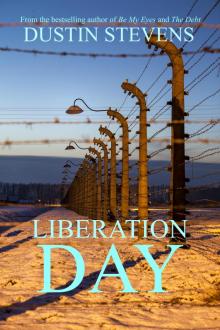 Liberation Day - A Thorn Byrd Novel
Liberation Day - A Thorn Byrd Novel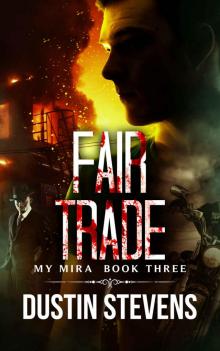 Fair Trade
Fair Trade The Scorekeeper
The Scorekeeper Wild Fire: A Suspense Thriller (A Hawk Tate Novel Book 6)
Wild Fire: A Suspense Thriller (A Hawk Tate Novel Book 6) Ham
Ham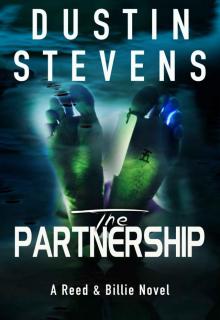 The Partnership
The Partnership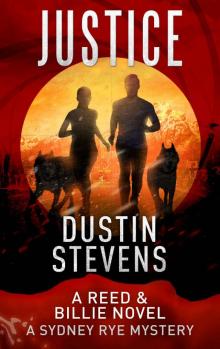 Justice
Justice The Subway
The Subway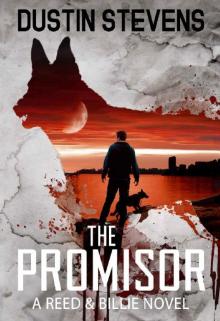 The Promisor: A Suspense Thriller
The Promisor: A Suspense Thriller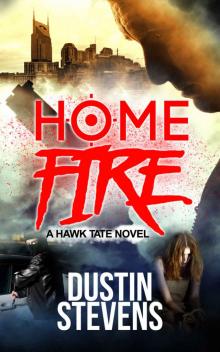 Home Fire: A Suspense Thriller (A Hawk Tate Novel Book 5)
Home Fire: A Suspense Thriller (A Hawk Tate Novel Book 5)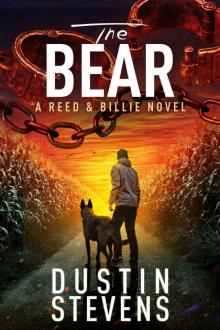 The Bear
The Bear Battle Cry
Battle Cry Warning Shot
Warning Shot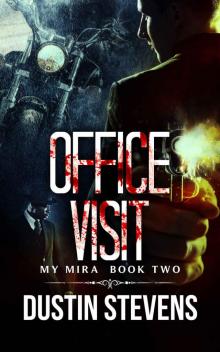 Office Visit
Office Visit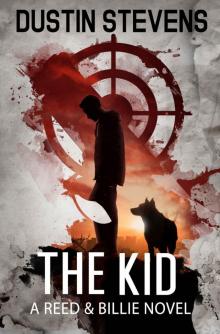 The Kid: A Suspense Thriller (A Reed & Billie Novel Book 3)
The Kid: A Suspense Thriller (A Reed & Billie Novel Book 3)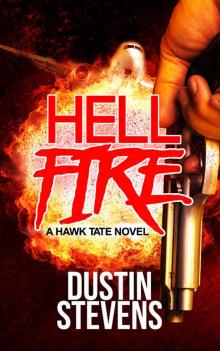 Hellfire: A Suspense Thriller (A Hawk Tate Novel Book 4)
Hellfire: A Suspense Thriller (A Hawk Tate Novel Book 4) Motive ; One Last Day ; Going Viral
Motive ; One Last Day ; Going Viral The Subway ; The Debt ; Catastrophic
The Subway ; The Debt ; Catastrophic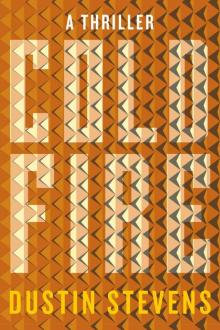 Cold Fire
Cold Fire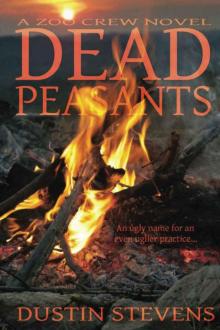 Dead Peasants (Zoo Crew series Book 2)
Dead Peasants (Zoo Crew series Book 2) Thriller Box Set One: The Subway-The Debt-Catastrophic
Thriller Box Set One: The Subway-The Debt-Catastrophic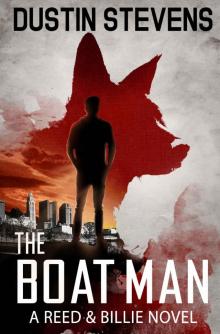 The Boat Man: A Suspense Thriller (A Reed & Billie Novel Book 1)
The Boat Man: A Suspense Thriller (A Reed & Billie Novel Book 1) The Zoo Crew (Zoo Crew series Book 1)
The Zoo Crew (Zoo Crew series Book 1) Twelve
Twelve The Good Son: A Suspense Thriller (A Reed & Billie Novel Book 2)
The Good Son: A Suspense Thriller (A Reed & Billie Novel Book 2) The Boat Man: A Thriller (A Reed & Billie Novel Book 1)
The Boat Man: A Thriller (A Reed & Billie Novel Book 1) Scars and Stars
Scars and Stars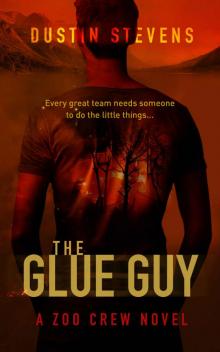 The Glue Guy: The Zoo Crew Series Book 4
The Glue Guy: The Zoo Crew Series Book 4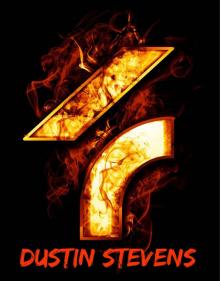 Four
Four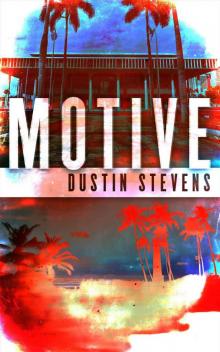 Motive
Motive 21 Hours
21 Hours Krokodil
Krokodil Ohana
Ohana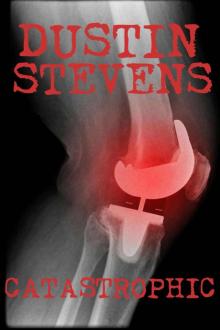 Catastrophic
Catastrophic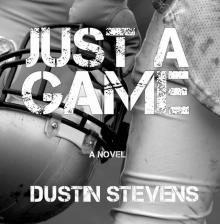 Just A Game
Just A Game Quarterback
Quarterback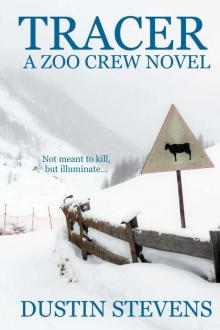 Tracer
Tracer Fire and Ice: A Thriller (A Hawk Tate Novel Book 3)
Fire and Ice: A Thriller (A Hawk Tate Novel Book 3)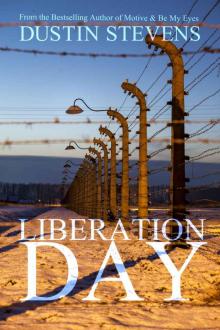 Liberation Day
Liberation Day